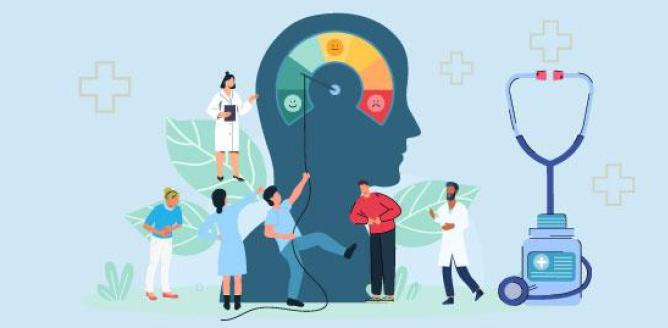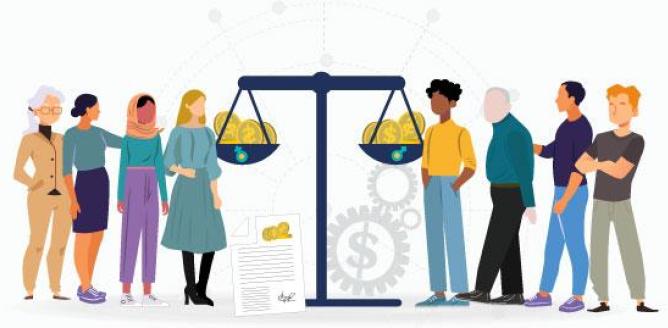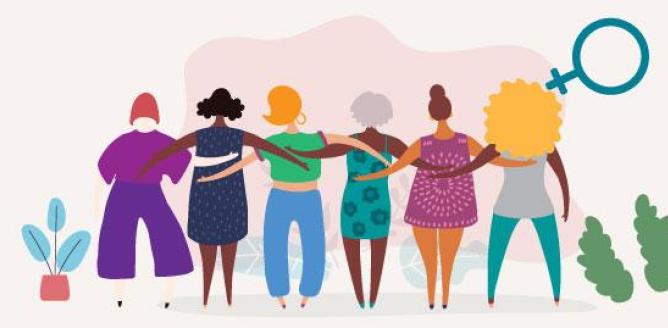Despite advancements in technology and medicine, women’s pain is often minimised or unrecognised in healthcare systems worldwide. This pervasive oversight affects the quality of care and widens the gap in pain management and treatment outcomes.
This gap is largely attributed to gender bias. Extensive evidence suggests that healthcare professionals routinely underestimate pain reported by women. Instead, they link a woman’s pain to anxiety or stress, even when it’s unrelated to her emotional state or misattributing it to her menstrual cycle. As a result, healthcare providers may overlook other potential causes for their discomfort.
A recent study revealed startling findings: female patients, despite reporting and displaying pain at the same intensity as their male counterparts, were perceived to be in less distress by doctors. This study highlights entrenched gender stereotypes -- that women talk about their pain more and may exaggerate the amount of pain they are in whilst men bear discomfort without complaint, meaning small signs of distress can be viewed as more important. Hence, women are less likely to receive the same level of consideration when it comes to medical care, which may lead to delayed diagnosis.
Globally, 70% of chronic pain patients are women. Yet, 80% of pain studies primarily involve male subjects, whether in animal or human trials. This is concerning given there are distinct gender differences found in the experience of pain and in the side effects and effectiveness of drugs typically prescribed to manage pain.
Gender biases in recognising women’s pain links closely to our collective inclination to ignore natural life phases such as menopause. The consequences of this disregard can be detrimental. The hormonal changes during menopause can lead to an upswing in chronic pain conditions, further contributing to the existing gendered pain gap. Healthcare providers may inadvertently downplay or misattribute menopausal pain because of several factors: information and research funding gap, lack of menopause-specific training as well as social norms around menopause being a natural phase of life and, consequently, pain related to it may be less significant.
Culture also plays a role, and this is evident in the experience of menopausal women within Chinese society. Lack of understanding around menopause and its symptoms can result in family or peers ascribing a mental illness to menopausal women or dismissing them as ‘moody’ or ‘oversensitive’. They may also face verbal or physical abuse when they speak up about their pain or discomfort or change their routines to accommodate their symptoms.
Not valuing women’s pain is one key facet of society’s continued narrative that the male experience is universal and women’s experience – our symptoms, our pain – must somehow fall within this purview. When it is unable to do so, these issues are downplayed or ignored.
At TWF, we want to change this narrative. Women’s health deserves equal attention – from equal research funding and equal representation in clinical trials to gender specific consideration and care given to treatment plans. But the healthcare industry is only one piece. We must work with our communities to dispel harmful myths about women’s pain that can prevent them from getting the support they need. It is through recognising and addressing these unique challenges faced by women, we aim to bridge the gendered pain gap and ensure that every individual receives the care and understanding they deserve.
Actions to consider:
- Be supportive: When women speak up about their pain, whether it’s due to menstruation, menopause or otherwise, listen and encourage them to seek help.
- Seek Second Opinions: Encourage women, including those going through menopause or those with complex health issues, to ensure an accurate diagnosis and comprehensive treatment options.
- Request Transparent Diagnostic Reasoning: Ask your practitioner to explain their diagnostic decision-making and how they’ve ruled out certain conditions to avoid potential biases or assumptions.
Get in touch at Fiona.Nott@twfhk.org.





















